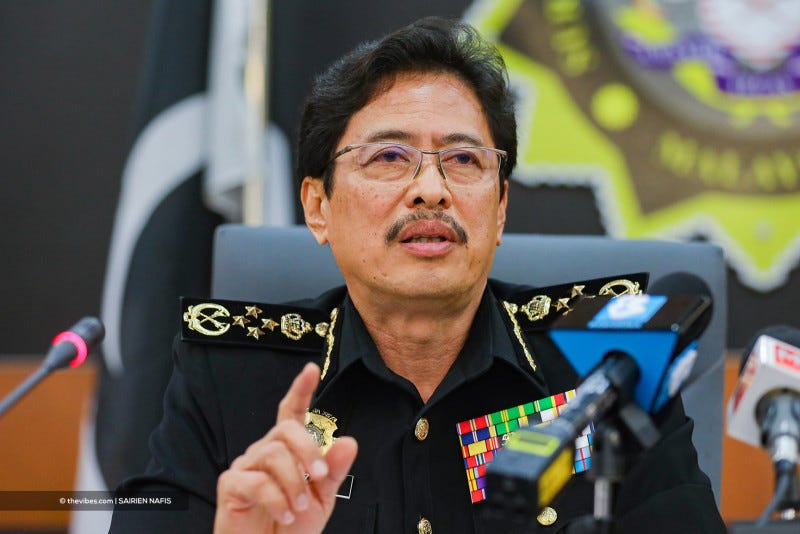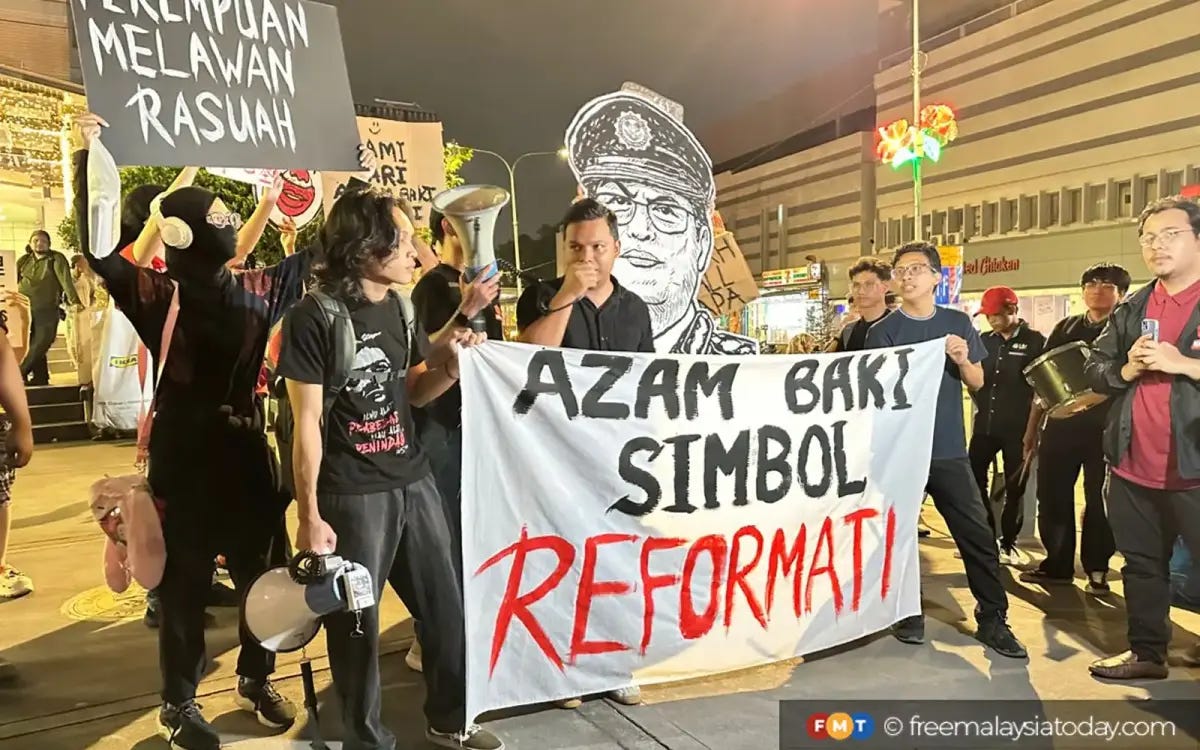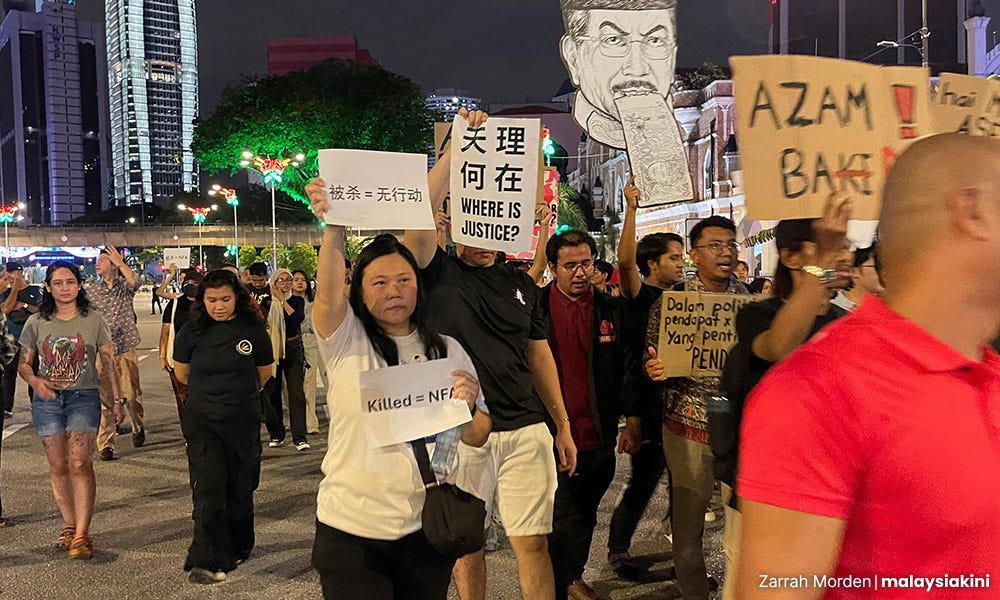
Murray Hunter
Bravery or blind loyalty? Rethinking Anwar Ibrahim’s praise of MACC Chief Azam Baki
P Ramasamy
May 25, 2025

In politics, it is often convenient to praise individuals deemed useful—regardless of how others perceive them or their track record.
This dynamic seems especially apparent in Prime Minister Anwar Ibrahim’s recent endorsement of Malaysian Anti-Corruption Commission (MACC) chief Tan Sri Azam Baki, whose tenure has been extended by another year.
Anwar’s praise, calling Azam the “bravest” MACC chief, has raised eyebrows—not because leaders shouldn’t commend civil servants, but because public confidence in Azam remains fractured. The endorsement seems to lack broader public consensus and appears disconnected from popular sentiment.

Azam’s leadership of the MACC has not been without controversy. He was previously embroiled in a scandal involving stock ownership, claiming that the shares were purchased in his name by his brother. Although he was eventually cleared of wrongdoing by the authorities, the episode cast a long shadow over his reputation. While he may have been legally exonerated, the moral and ethical implications of the case remain unresolved in the eyes of many Malaysians.
When Anwar assumed the premiership, he made the decision to retain Azam—possibly because Azam was seen as amenable to the direction of the new administration. This perception of loyalty may have outweighed concerns over his credibility or independence. Indeed, this latest extension is not the first; it suggests a calculated decision by Anwar, one that aligns more with political expediency than institutional reform.
Even Nurul Izzah, Anwar’s daughter and now the deputy president of PKR, reportedly expressed disagreement with her father’s decision to extend Azam’s contract. This internal dissent only underscores the divisive nature of Azam’s continued leadership.
Moreover, labeling Azam as the “bravest” chief of the MACC appears not only hyperbolic but dismissive of his predecessors. What the MACC needs is not a war hero but an independent, law-abiding, and principled leader—someone who can enforce anti-corruption laws impartially and without fear or favor, even if it means challenging those in power.

In reality, the relationship between the MACC and the executive has never been more blurred. The perception that the MACC operates as a tool of the Prime Minister’s Office undermines its legitimacy. If Azam’s bravery is defined by targeting political opponents of the current government while sidestepping scandals involving allies, then it is bravery in name only.
For instance, glaring corruption allegations in Sabah have been met with disturbing silence. Despite the mounting evidence and public concern, there appears to be little urgency—or courage—on the part of MACC under Azam to investigate. This inaction reinforces the belief that selective prosecution is at play, with the agency allegedly more enthusiastic about pursuing critics of the “Madani” government than rooting out systemic graft.
Anwar’s use of the term “bravery” in describing Azam seems more like political rhetoric designed to justify a questionable appointment. It may play well in certain political circles, but it does little to reassure Malaysians who expect integrity and independence from public institutions.
Let’s not forget: Azam’s salary and authority are not gifts from the Prime Minister—they are financed by the Malaysian taxpayer. As such, public servants, especially those in enforcement agencies, must be held to the highest standards of transparency, accountability, and impartiality.
In conclusion, the real test of leadership at the MACC is not about being brave in the eyes of a Prime Minister, but being principled in the eyes of the public. If Azam is to be praised, let it be for upholding justice without fear or favor—not for political loyalty disguised as courage. Until then, his continued presence at the helm of MACC risks further eroding public trust and making a mockery of the very reforms the Madani government claims to champion.
No comments:
Post a Comment